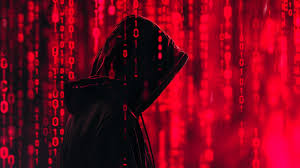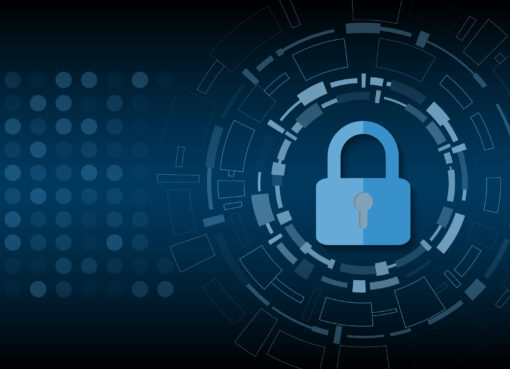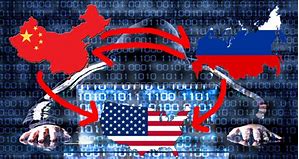February 20, 2017
Allegations and counter-allegations between the Western countries and Russia continue to dominate reports of cyber attacks, the latest being interference in the French presidential elections. Hacker attacks on banks world-wide are another significant theme of recurring importance demanding urgent attention.
France warns of retaliation if Russia meddles in election
http://www.france24.com/en/20170215-france-election-russia-hacking-warning-retaliation – France said it would not accept interference by Russia or any other state in its presidential election, and would retaliate if necessary. The pledge by Foreign Minister Jean-Marc Ayrault followed complaints by the party of election frontrunner Emmanuel Macron that his campaign was the target of ‘fake news’ put out by Russian media, as well as internet attacks on its databases. French President Francois Hollande has called a meeting of national defence chiefs next week to discuss cyber security, demanding to see “specific monitoring and protection measures” to be taken during the election campaign, a statement from his office said. The meeting is set for Feb. 23.
Related article: http://www.france24.com/en/20170219-france-condemns-cyberattacks-targeting-presidential-candidate-macron-points-russia – Suspected Russian cyberattacks on the French presidential campaign are “unacceptable”, France’s foreign minister said Sunday, adding it was clear that pro-Europe candidate Emmanuel Macron was being targeted. A spokesman for Macron, who is currently riding high in the polls, has accused Moscow of being behind a flurry of cyberattacks on his campaign website and email servers over the past month.
https://www.theatlantic.com/international/archive/2017/02/democracy-cyber-war/516351/ – Why haven’t Western democracies made the necessary reforms to adapt to the threat? Why have they let countries like Russia get the upper hand, not in capabilities, but in practice? One answer is that democracies, by their very nature, hinge on checks and balances that limit the concentration of power and slow down governmental decision making. While all bureaucracies, including those of authoritarian regimes, are slow-moving, Vladimir Putin or Xi Jinping surely are less encumbered by their laws and institutional constrains than their democratic counterparts.
Russian Interior Ministry prevents $ 50 million damage from Cyberattacks
http://tass.com/economy/931048 – Over 70 million computer attacks on Russian information resources were carried out in 2016 and over a half of them were organized from the territory of other countries. Deputy Secretary of Russia’s Security Council Oleg Khramov made this statement at a conference of the Organization for Security and Cooperation in Europe (OSCE) on the cyber security of infrastructure facilities and confidence-building measures. Their number increased almost threefold compared with 2015,” Khramov said.
Related : http://rusembindia.com/home/briefings/186-briefings/8296-briefing-by-foreign-ministry-spokesperson-maria-zakharova-moscow-february-15-2017 – Today I’d like to focus on the subject roiling the western world – another interesting story about “Kremlin hackers.” We saw media reports on Russia allegedly hacking the Italian Foreign Ministry and other Italian institutions last year. The issue of hacking attacks involves not only Italian agencies but France as well. This is not the first time that such absolutely unjustified charges were made against Russia. It has become standard practice and is persistently being implanted in people’s minds. The strategy is clear and the ways to implement it are also evident. We certainly understand that this subject is being artificially boosted by the media, so as to frighten ordinary people with the “threat” allegedly posed by Russia. The irony of it is that all the dishonest practices of many western colleagues become common knowledge either some time later when facts are confirmed (for example, using toxic weapons that are destructive to human health), or when independent investigative reports are published.
Cyber attacks on international banks show links to hackers who hit Sony
http://www.business-standard.com/article/international/cyberattacks-on-international-banks-show-links-to-hackers-who-hit-sony-117021400053_1.html – Cybersecurity specialists have found evidence suggesting that recent attacks on institutions in Poland are part of an international hacking effort targeting financial institutions in the U.S., Mexico and the United Kingdom-an attack that shares traits with the 2014 attack on Sony Corp. The hacks began late last year, installing unauthorized code on websites belonging to financial regulators, then using those to attack computers belonging to a select list of global financial institutions, according to researchers who have examined the attacks at security vendors Symantec Corp. and BAE Systems PLC.
Indian Home Ministry’s website hacked, officials deny claims
http://www.thehindu.com/news/national/Home-Ministry%E2%80%99s-website-hacked-officials-deny-claims/article17292021.ece?homepage=true – The website of the Ministry of Home Affairs (MHA) was hacked on Sunday, prompting authorities to temporarily block it. The MHA, however, denied any hacking saying it was “down for repair”. The hacking incident came to light when the Ministry lodged a complaint with the Delhi Police. Last month, suspected Pakistan-affiliated operatives had hacked the official website of the elite National Security Guard (NSG) and defaced it with a profanity-laden message against the Prime Minister and anti-India content.
Private sector must join battle against cyber-attacks, says Hammond
https://www.theguardian.com/technology/2017/feb/14/private-sector-must-join-battle-against-cyber-attacks-hammond – Hacking attacks on the government and businesses are increasing in their frequency, severity and sophistication, Philip Hammond, the chancellor, has said. UK hit by 188 high-level cyber-attacks in three months. In advance of the formal opening of the National Cyber Security Centre (NCSC) by the Queen and the Duke of Edinburgh, Hammond said companies needed to sharpen their approach as the threat of hacking attacks “increases and intensifies”. He said the new centre has responded to 188 attacks in the first three months of its existence, as the government announced a plan to train 100 people seconded from business at the centre led by GCHQ, one of the intelligence agencies. The announcement was made as a survey of more than 19,000 cybersecurity professionals, by the Center for Cyber Safety and Education, revealed the world will face a shortfall of 1.8 million experts in the field by 2022 to keep up with the pace of attacks. It also said this was an increase of 20% on the five-year projection made in 2015 by the same survey.
Chinese censors’ looser social media grip ‘may help flag threats’
http://www.scmp.com/news/china/policies-politics/article/2070261/chinese-censors-looser-social-media-grip-may-help-flag – The Chinese government may be allowing some discussion of protests and allegations of corruption on social media to keep a closer eye on local officials and potential threats to stability. That is the conclusion of a team of researchers from Hong Kong, Sweden and the United States who mined a data set of more than 13 billion blog posts in 2009-2013 on Sino Weibo, the mainland’s biggest microblogging platform. The mainland has tightened its grip on online comments in recent years, including detaining some of the most popular Weibo commentators. But “a shockingly large number of posts on highly sensitive topics were published and circulated on social media” during the five-year period, the researchers said in their paper in the Journal of Economic Perspectives published by the American Economics Association.
Can Brain Fingerprinting be the Science of Security?
https://www.linkedin.com/pulse/can-brain-fingerprinting-science-security-jayshree-pandya-ph-d?trk=v-feed&lipi=urn%3Ali%3Apage%3Ad_flagship3_feed%3BLrvoQNyTBEgauQ4iKV3YlQ%3D%3D – As we see currently, in cyberspace, geospace and space (CGS), we are facing massive security risks. Managing those security risks in CGS is a priority for each nation: its government, industries, `organizations and academia (NGIOA). Science can come to the rescue and be at the front-line of defense. To be able to do that, we need to unlock the secrets of the roots of human safety, security and sustainability. What better way to do that than scientists from across nations coming together and collaborating and combining their efforts to decode the human brain, which stores all those secrets.




